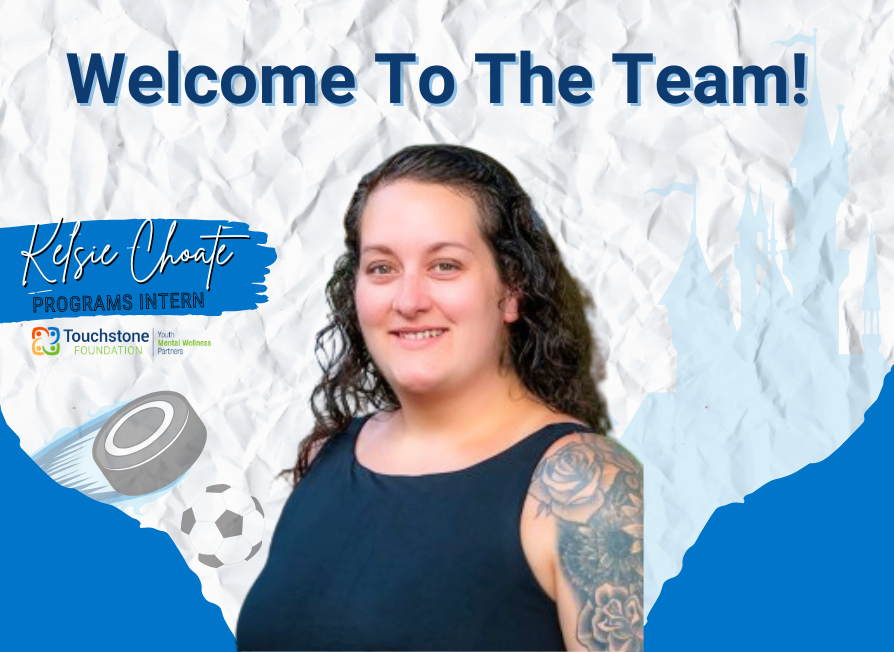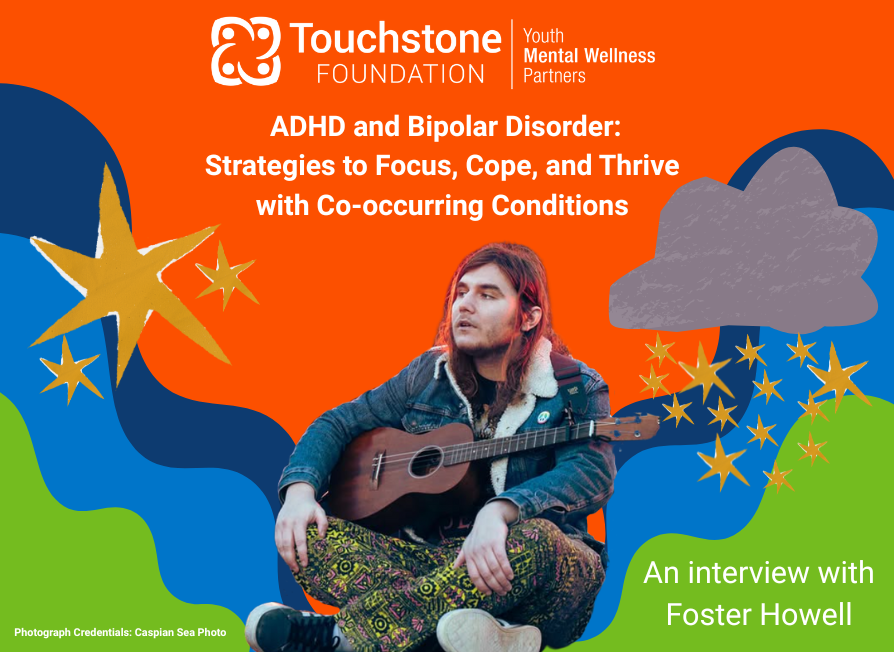The month of May was the launch of “Touchstone Chats”! This is a monthly discussion group where we discuss topics of mental health through literature, podcasts and other forms of media. On the last Tuesday of each month from 12 – 1 pm, we will be discussing a new topic of mental health through a different lens and/or perspective.
Our first “Touchstone Chats” discussion group, we read (or listened to the interview) “What Happened to You: Conversations on Trauma, Resilience, and Healing” by Dr. Bruce Perry and Oprah Winfrey.
Thank you to Bill Zee, a member of our Board of Directors, for hosting this discussion.
Our discussion was centered around the SXSW Conference discussion (available here on Youtube), and everyone is encouraged to read the book.
If you’re interested in the takeaways of our conversation please read the rest of the blog for a recap.
What is an evocative cue?
Authors Dr. Bruce Perry and Oprah Winfrey discuss topics of childhood trauma, resilience, and healing through their personal and professional experiences. In our discussion, Bill Zee opened with a discussion of the concept of evocative cues, as opposed to using the term trigger, referring to our emotional response in the brain when we are transported back to reminders of traumatic experiences. Participants suggested discussing memories as experiences we carry with us, a lens through which we see the world and make sense of things.
Why is safety paramount in the brain?
We discussed safety and attachment, the importance of positive predictability, and in education, the value of previewing for students. Most behavior challenges occur during transition periods. As adults, we often focus on fixing behavior, and our attunement to the child’s behavior can often be missed. If we attune to the child’s experience first, then we can help the child to regulate their behavior.
One participant shared the analogy of needing to go through security before boarding an airplane. First and foremost, as human beings, we need security and safety, which resides in the brain stem, the lowest part of the brain. All behavior is communication, and if we ask ourselves, “What is this kid trying to say?” with their actions, instead of jumping to trying to fix the behavior.
“Given love, the unloved become loving”
As adults, we can help children develop neuroplasticity with love. Bill shared one of his favorite quotes from the book, “Given love, the unloved become loving”. We discussed the “3 Es” – Event, Experience, and Effect, especially attenuating to where kids are so that we can help them regulate their emotions and behaviors. Doing all of this through love, showing love, to help kids feel loved and lovable, is so important. Traumatized kids can appear unlovable, often in education. As adults, it’s our responsibility to reframe this perspective, giving grace to ourselves and kids.
To access love, we as human beings, need connection. Our brains crave safety, love, connection, and belonging. We need to feel like we are part of a family, whether it’s a biological family, a family of friends, or a workplace family. We’re healthier and creating a culture of belonging when we feel safe to openly share how we’re feeling. In turn, we’re filling our buckets and we’re more productive.
Sometimes, as adults, especially in the workplace, we’re afraid of the word love, and prefer to use the term connection. For healing to occur, we need to hold space for another person to express their humanity. As evolutionary beings, we’ve adapted from ancient times through the industrial revolution to today, away from our extended families to smaller families and workplace families.
How does epigenetics factor in understanding what happened?
We discussed epigenetics and DNA passed from mother to child in chapter 5, especially in the context of historical trauma of racism and enslavement. This generational trauma creates hypersensitivity and hyperarousal or dissociation. By building genuine, authentic connections, we can start to heal from generational trauma. Unfortunately, stigma continues, and we don’t discuss passing these traits as much as others such as aptitude for music or math skills.
Healing and Post-Traumatic Wisdom is Key
From coping to healing is the focus of Chapter 6, and we discussed the difference between good, healthy stress vs. Toxic stress. Changing our default pathways, understanding neuroplasticity, and rewiring our brains can help us heal and lead us on the path towards wisdom. The authors discuss “Post Traumatic Wisdom” as an alternative to Post-Traumatic Stress Disorder.
Finally, we discussed therapy modalities used to treat trauma. It isn’t always necessary to talk through or revisit traumatic events in order to heal. Healing can occur on a body level and can be processed or accessed through EMDR and similar methods in the body. Different methods can still create healing. Meeting people where they are is healing. Community health and systems change can also help us think differently, in a trauma-informed lens about helping people from where they are at right now, rather than where we think they should be. Better practices in schools and workplaces promote healing, authentic connections among people.
In Summary -
With trauma, intersectionality is key to understanding “What Happened to You?”, understanding the brain as a 4-layer cake of an inverted pyramid. Resilience – What does it mean to be regulated? Healing, during COVID, and the need for human connection. Dr. Bruce Perry says that disconnection is a disease; then connection is a cure.
Here are some important notes to focus on in the book-
- Page 27- Four anatomical regions of our brains and their functions;
- Page 57- Stress vs. Toxic Stress;
- PP. 71-74- How we are love (attachment), and Neuroplasticity;
- PP. 102-3- The Three E’s of Trauma;
- Page 104- ACEs AND THE Dose Effect;
- Chapter 5- Intergenerational aspect of trauma;
- Page 141- Neuro-Sequential Model, and Dysregulation, Regulation, and Co-Regulation;
- Chapter 6- Responses to stress- Hyperarousal and disassociation;
- Painful Path of Wisdom;
- Page 222- Trauma Informed Systems Change
Join us on June 28 for “In the Dream House”!
Our next book club will be on Tuesday, June 28th from 12:00 – 1:00 pm, and the book will be “In the Dream House” by Carmen Machado, with the “Touchstone Chats” discussion hosted by our Board member, Amanda Katchur, PsyD and co-hosted by Brian Nguyen, Board member at the LGBTQ+ Coalition. We chose this book to celebrate PRIDE Month and explore topics of LGBTQIA+ and mental health. We’ll host this both in-person at the Touchstone Foundation office, and online via Microsoft Teams.
Want to host/ facilitate a book club? We are looking for book recommendations and hosts for July and future months, email srosa@touchstonefound.org with subject “Touchstone Chats”.




